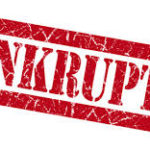 Bankruptcy is governed by federal law and all bankruptcy proceedings are heard in federal court. In our area, the bankruptcy court is located in Tampa.
Bankruptcy is governed by federal law and all bankruptcy proceedings are heard in federal court. In our area, the bankruptcy court is located in Tampa.
In most instances, bankruptcy for individuals will usually mean filing a chapter 7 or a chapter 13 bankruptcy. Essentially, there are some basic differences between the two and I can help you choose which is appropriate for your particular financial situation.
While bankruptcy is complex, there are some fundamental differences between chapter 7 and chapter 13 filings. For instance, a candidate for chapter 7 bankruptcy usually has little or no disposable income and seeks to wipe clean his debt in a bankruptcy proceeding. On the other hand, chapter 13 typically involves a re-structuring of debt so that these debts are paid back over time. This is why chapter 7 is known as a liquidation while chapter 13 is considered a reorganization.
A chapter 7 bankruptcy is generally much quicker than chapter 13. Chapter 7 filings may take between three to five months while a chapter 13 takes three to five years. The difference is stark but chapter 13 has benefits not available to a person who files chapter 7. For instance, a chapter 13 filer is given the opportunity to catch up on missed or late mortgage payments and auto loans. The person who files for chapter 7 may be facing repossession or foreclosure proceedings which obviously affects their credit rating.
In chapter 13, the repayment plan is structured according to your debt and your income. Payments are made to a trustee until all debts are repaid. When you file for Chapter 7 bankruptcy, a trustee is appointed to administer your case. In addition to reviewing your bankruptcy papers and supporting documents, the Chapter 7 trustee’s job is to sell your nonexempt property to pay back your creditors. If you don’t have any nonexempt assets, your creditors receive nothing. As a result, Chapter 7 bankruptcy is typically for low income debtors with little or no assets who want to get rid of their unsecured debts.
